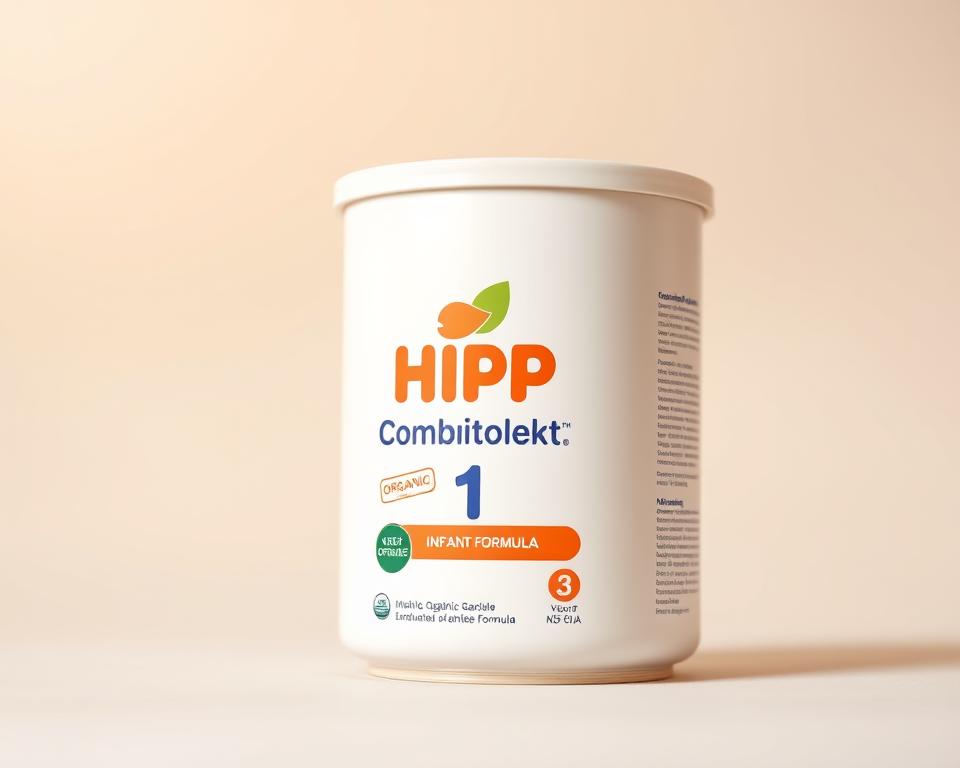Book Security Guards Los Angeles for Event Security
Fun fact many event teams ask for short-notice on-site coverage and secure certified guards within hours? This rapid response matters when crowds, venues, and run-of-show plans change fast.
David Shield Security is a dedicated event ally that creates comprehensive protection plans. We tailor staffing to venue size, crowd type, and risk level while maintaining smooth guest movement.
Clients may choose event security near me Los Angeles for high-visibility coverage or subtle oversight. Our California BSIS-licensed teams manage access control, bag checks, credential screening, and joint response with venue staff and local authorities.
Plans reduce disruption with well-defined post instructions, communication trees, and layered measures like outer-ring posts, surveillance monitoring, and 巡逻走动. Quick rollout and scalable armed or unarmed options support urgent needs across the county.
What To Know
- David Shield Security delivers tailored event protection plans.
- Clients can request uniformed or plainclothes guards for check-in and credentialing.
- Teams are BSIS-certified and collaborate with venues and law enforcement.
- Layered measures reduce disruption while improving safety.
- Quick dispatch provides on-site coverage same day for last-minute needs.
David Shield Security: Reliable Event Protection You Can Trust in LA
David Shield Security offers a reliable, scalable approach so organizers can count on smooth operations from load-in to last call.
As a dedicated event security provider, we deliver SOPs, trained supervisors, and audited check-in/out routines. Our team works seamlessly with producers, vendors, and venue management to align timing, staging, and guest flow.
We use a layered model: credential verification, bag screening, access control, perimeter posts, rovers, and an on-site command channel. Personnel train in de-escalation and situational awareness to defuse problems discreetly while keeping guests relaxed.
Compliance and accountability matter. We keep incident logs, maintain chain-of-custody for confiscated items, and liaise with local authorities when needed. Supervisors check standards and reallocate resources in real time.

- Scalable services for small private events and big crowds
- Clear post orders and communication trees to speed entry at peak times
- Insurance-minded practices and documented incident procedures
Clients count on our services to focus on programming and hospitality while we manage the logistics of physical protection and crowd control.
Hire Private Security Los Angeles
Strong event security depends on a site walk that maps choke points and guest flow.
David Shield Security helps organizers, businesses, and individuals through a simple onboarding. We match a risk assessment with staffing recommendations so headcount matches crowd size and guest demographics.
Key decisions include visible vs. discreet, armed vs unarmed, and fixed posts versus roving patrols. Our teams build post orders after a pre-event walk-through, noting VIP corridors, load-in routes, and restricted zones.
Officers handle ID checks, guest lists, and tiered access to green rooms, stages, and storage. Dispatch and supervision ensure punctual arrival, radio briefings, and site maps before doors open.
- Scale staffing for peak arrivals, valet areas, and bars
- Coordinate medical support, evacuation routes, and muster points
- Provide thorough incident reports for venue compliance and reviews
Early booking syncs Los Angeles services with venue rules and neighborhood considerations. For most events, this planning blends guest comfort with solid control.
Event Security Services Adapted to Your Venue, Crowd, and Risk Level
A robust event plan begins by mapping the venue, assessing the crowd, and prioritizing critical entry points. David Shield Security builds tailored event security plans that integrate people, process, and technology to keep guests safe while maintaining throughput.
Access Control, Bag Checks, and Credential Screening
Access points are set up for efficient throughput. Bag checks, guest-list validation, and credential screening work together to reduce bottlenecks.
- Clear signage, credential tiers, and staff briefings at call time.
- Policies for prohibited items and documented confiscation procedures following venue rules.
Crowd Management, Lines, and Entry Flow
Queue design uses stanchions and usher teamwork. Guards watch capacity and shift lanes in real time to avoid crowding.
Uniformed presence reduces incidents, while plainclothes officers observe discreetly near VIP zones and green rooms. Post positions at bars, stages, and corridors control density.
Surveillance Monitoring and Mobile Patrols
Camera monitoring links to radio communications and roving patrols so anomalies are spotted quickly. Patrol frequency scales to program timing and crowd behavior to sustain coverage across the area.
Armed and Unarmed Guards for Every Event Scenario
Choosing the right mix of armed and unarmed staff shapes both safety and guest experience at every event.
When Armed Officers Are Recommended
Armed protection is suitable for events with high-value assets, cash handling, or heightened risk from public interest or controversial programming. Officers assigned to asset control points, docks, and perimeter choke points hold BSIS licenses and complete firearms and de-escalation training under California rules.
Unarmed Guard Advantages for Welcoming Environments
Unarmed guards specialize in observation, access control, and crowd management while keeping a friendly presence. They reduce friction at check-in, queues, and stage wings by using customer-service-forward engagement and swift reporting.
David Shield Security assembles mixed deployments—armed teams at cash rooms and asset zones, unarmed teams at entrances and VIP hospitality—to unite strong security with hospitality. Threat assessments use past incidents, guest profiles, venue context, and neighborhood factors.
- Compliance: BSIS licensing, use-of-force training, and documented protocols.
- Escalation: unarmed guards notify armed counterparts or law enforcement when threats emerge.
- Professional standards: punctuality, appearance, and venue rule adherence for all services.
Executive Protection and Bodyguards for VIP Guests and Speakers
For VIPs and high-profile speakers, dedicated close-protection teams manage every movement and risk detail.
Executive protection officers conduct advances: venue sweeps, route planning, and secure arrivals and departures. They identify surveillance indicators and reduce visible threat exposure for clients.
Protective formations and discreet bodyguards scale to stage times, press lines, and meet-and-greets. The team communicates with event command to align timing with crowd control and vehicle staging.
- Personal security plans for individuals with business visibility.
- Contingency routes and fast relocation plans for crowd surges or protest activity.
- Team roles: EP lead, close protection officers, and a driver with encrypted radio channels.
| Service |
Typical Tasks |
Benefit |
| Advance Work |
Venue sweeps, route checks |
Reduced surprise risks |
| Close Protection |
Discreet escorting, formations |
Safe, comfortable public presence |
| Contingency Planning |
Fast relocation, protest response |
Maintains continuity and safety |
Armed security options are available when policies and risk assessments require them. Post-event debriefs record takeaways and refine future protection plans.
Events We Secure in Los Angeles
David Shield Security protects a wide range of gatherings across the region, aligning resources and SOPs to each occasion.
Our teams cover corporate functions and product launches with controlled guest lists, media zones, and brand-asset protection. We set clear access points, credential lanes, and media staging to safeguard property and speed entry.
Corporate Functions, Conferences, and Product Launches
Planned coverage includes lobby screening, VIP escorts, and asset monitoring. Briefings synchronize teams with production schedules and peak arrival times to reduce bottlenecks and protect exhibits.
Private Parties, Estates, and Weddings
For estate events and weddings we focus on privacy, valet flow, and neighbor relations. Teams guard property and manage guest movement while respecting noise and curfew rules.
Large shows need perimeter fencing, bag checks, stage protection, and egress planning. Crowd managers and roving teams update posture as the crowd changes through the night.
| Event Type |
Typical Tasks |
Staffing |
Notes |
| Corporate launches |
Guest lists, media zones, asset watch |
Entrance teams, rovers, supervisors |
Controlled access; timed entries |
| Estates & weddings |
Valet flow, boundary control, neighbor liaison |
Discrete posts, ushers, bodyguards |
Privacy-first; family comfort |
| Concerts & festivals |
Perimeter, bag checks, stage/front-of-house |
Crowd managers, fence teams, med liaisons |
Peak staffing for set changes and egress |
We include bodyguards or armed security only when risk and cash or high-value gear demand extra measures. All plans scale down for small business or individual clients without compromising standards.
How We Secure Your Event from Start to Finish
We create each event plan around measurable risks and clear operational roles to keep guests safe and schedules on track.
Pre-Event Risk Assessment and Post Orders
We run a formal risk assessment that analyzes layout, attendance, VIP profiles, neighborhood factors, and past incidents. This highlights likely threat vectors and medical access needs.
Findings form post orders with staffing levels, post maps, call signs, and escalation paths. These documents guide every team member and limit miscommunication at peak times.
On-Site Command, Communications, and Emergency Response
On event day a lead, supervisors, rovers, and fixed posts share a single radio channel for fast response. Clear comms and clear roles shorten timelines and keep the program on schedule.
Surveillance integration links CCTV monitoring to incident logging. Camera-to-ground coordination directs staff to precise locations and boosts response precision.
Coordination with Venue Management and Local Authorities
We host joint planning sessions with venue operations, production managers, and local EMS or law enforcement. This aligns emergency roles, ingress/egress for public safety vehicles, and AED locations.
Guest-facing solutions—queue guidance, ADA accommodations, and courteous bag checks—unite security and guest comfort. Staffing adjusts during peaks to preserve readiness without overstaffing.
- Documented activity logs, incident reports, and post-event debriefs inform future planning.
- Medical coordination and clear egress plans support rapid, coordinated response.
- The team emphasizes clarity so organizers can concentrate on production.
Rapid Deployment: Temporary and Short-Notice Security Coverage
Urgent activations and sudden staffing gaps call for a fast, organized deployment that manages exposure swiftly.
David Shield Security provides rapid-response teams that can place armed or unarmed guards on site within hours. This service meets same-day requirements when equipment fails, staff call out, or a pop-up event requires coverage today.
Common short-term assignments include overnight patrol, emergency access control, lobby presence, and protection of staging or equipment. Interim personal security details are available for principals who need escorts to vehicles or between venues.
- Same-day dispatch and quick scheduling to meet sudden event needs.
- Minimal onboarding: site brief, post priorities, comms check, and access points.
- Roving patrol routes and timed check-ins to hold the perimeter while longer plans form.
| Rapid Task |
Typical Duration |
Benefit |
| Overnight patrol |
8–12 hours |
Asset protection and deterrence |
| Emergency access control |
As needed, same day |
Controlled entry and guest screening |
| Personal escort |
Short shifts |
Discrete personal security for principals |
Even in expedited deployments, we maintain incident reporting and supervision. If threats escalate, escalation pathways enable additional staffing or coordination with law enforcement to keep security and documentation strong.
Coverage Across Los Angeles County
Our footprint covers the county, planning logistics to match local rhythms and constraints.
David Shield Security staffs events in Downtown, Hollywood, the Westside, the Valley, and coastal areas. Each area has different traffic patterns, loading rules, and neighborhood concerns that affect arrival times and guest egress.
Regional logistics and local knowledge
- Map coverage to convention centers, studios, hotels, museums, stadiums, and private estates across Los Angeles.
- Local insight informs timing, parking plans, and egress routes for guests and staff in each area.
- Downtown loading docks, Hollywood red carpets, Westside ballrooms, Valley warehouses, and coastal outdoor venues each demand tailored approaches.
Operational flexibility and coordination
Roving patrols and fixed posts respond to site limits, such as tight dock space or multiple entrances. Neighborhood relations, noise windows, and permits are handled in advance.
| Need |
Action |
Benefit |
| Large street impact |
Coordinate with local authorities |
Smoother traffic and safe crowd control |
| Hospitality events |
Work with building management and union crews |
Aligned timing and fewer delays |
| High-value assets |
Evaluate armed security options |
Improved protection where needed |
Supervision, clear communications, and steady SOPs keep service quality uniform across the county. Organizers and business clients can expect the same care from pre-event planning through teardown, with coverage across Los Angeles tailored to each venue.
Licensed, Insured, and BSIS-Certified Security Professionals
All David Shield team members hold current California licenses and meet strict vetting standards before assignment. Our officers are BSIS-certified for both armed and unarmed roles, ensuring compliance with state rules for event operations.
The company maintains insurance levels required by venues and municipal permits. Certificates of insurance are available to satisfy vendor or venue demands.
Training covers observation, conflict prevention, de-escalation, emergency procedures, and incident documentation. Regular drills and classroom refreshers keep skills current.
- Background screening and professional standards reflect leading event companies in the region.
- Supervisory checks and on-site audits uphold post orders and conduct requirements.
- Clear reporting formats comply with venue and insurer expectations for incident logs and after-action notes.
Our teams bring event experience across types from galas to multi-day conferences and concerts. We blend protection objectives with hospitality at guest-facing posts.
Scheduling discipline, reliable backups, and ongoing training support a culture that responds to emerging threats and sustains reliability.
Why Choose David Shield Security for Your Event
For events that demand quiet coordination and reassuring presence, David Shield Security provides proven solutions.
Our clients pick us for proven reliability, thorough planning, and fast communication. We tailor services to venue rules, brand standards, and audience expectations so every plan aligns with objectives.
- Client-first approach: staff and post orders fit production timelines and vendor schedules.
- Versatile capabilities: event operations, executive protection, and personal security for principals.
- Consistent supervision: pre-shift briefings, on-call leads, and post-event debriefs that improve outcomes.
We balance protection with hospitality to keep guests comfortable and provide peace of mind. Responsive staffing and right-sized posts keep spending efficient while meeting safety goals for business events and private gatherings.
Positive word-of-mouth means many clients highly recommend our team. Get in touch to discuss your needs so we can outline staffing mixes and provide a precise quote.
Visible Deterrence, Fast Response, and True Peace of Mind
A well-marked, well-organized presence at key entry points reduces incidents before they start.
Visible posts at entrances and choke points deter rule-breaking. A clear presence shows standards are upheld and guests move more smoothly.
Roving guards patrol and scan high-traffic zones, back-of-house corridors, and parking areas for early indicators of risk. Those rovers flag anomalies and can intercept before problems grow.
Coordinated surveillance observation directs a guard rapidly to anomalies. Rapid response protocols prioritize guest safety while limiting interruption.
- Courteous but firm interactions preserve safety and brand standards.
- Radio discipline and designated call signs speed reaction at peak moments.
- Layered visibility and monitoring strengthen deterrence without overwhelming attendees.
| Element |
How It Works |
Benefit |
| Visible Posts |
Fixed positions at entries and choke points |
Immediate deterrence and orderly flow |
| Roving Guard Teams |
Regular sweeps of high-risk areas and parking |
Early detection and fast intervention |
| Surveillance Coordination |
Camera feeds direct ground response |
Targeted, efficient deployment |
All interventions are documented and followed up to support compliance and ongoing improvement. Training in situational awareness and quick decision-making keeps the team ready and confident.
The result is true peace of mind: safety with comfort so guests feel safe and welcome throughout the event.
Trusted by Homeowners and Businesses Hosting High-Profile Events
David Shield Security is the trusted partner for hosts who need confidentiality and clear protocols. We safeguard private estates and corporate sites with equal care.
At a home event we mind neighborhood concerns, safeguard property, and protect family and guests. Controlled access, vendor vetting, and privacy measures keep the evening calm and confidential.
For business launches we unite guest experience with asset protection. Visitor management, credential lanes, and asset protection keep companies focused on the guest experience.
Services cover boutique parties to red-carpet events without reducing professionalism. Experienced supervisors coordinate with planners, caterers, and venue staff to keep flow smooth.
- Discrete estate protocols to protect valuables and manage vendor access
- Corporate guest handling and layered access control for brand events
- Personal security escorts for an individual host or keynote that integrate with overall staffing
Clients often highly recommend our team after events run smoothly and with minimal disruption. Documentation and after-action notes improve the next event and build repeatable experience for both home and business hosts.
Get a Customized Security Plan and Quote Today
Request a tailored event security plan and receive a clear quote that aligns with your program and timelines.
Share event details so our team can outline a plan that follows venue rules and guest experience goals. Tell us attendee counts, layout notes, VIP needs, and any special risks.
We assess security needs by studying capacity, choke points, ingress/egress, and VIP movement. That analysis determines the right staffing mix and roles for each post.
- The quote includes post orders, headcount, shift schedules, radio channels, and supervisor structure.
- Options for personal security escorts are available and can be embedded with broader event staffing.
- Transparent pricing and scalable services fit business events, estates, and public gatherings.
Contacting us today speeds scheduling, briefings, and equipment readiness before event day. We collaborate with clients to polish playbooks during rehearsals and arrival windows.
| Deliverable |
What It Shows |
When It’s Ready |
| Site-based quote |
Post map, headcount, and cost estimate |
After consultation and review |
| Communications plan |
Radio channels, call signs, escalation paths |
Pre-event briefing |
| Service kickoff |
Site orientation, radio checks, safety briefings |
At shift start |
Solutions cover single-day, multi-day, or recurring events. Contact us to finalize dates and secure your preferred crew.
Conclusion
For every event, we develop layered plans that match venue layout, audience profiles, and timing needs. Our certified team offers consistent protection and clear procedures so organizers can concentrate on content.
David Shield Security fits service levels to your audience, and it integrates executive protection and personal security for VIPs without impacting guest comfort.
We fit plans to your requirements, venue rules, and neighborhood constraints to ensure smooth operations. Early booking is advised during peak times to lock preferred dates and crews.
Contact the company for a tailored plan that covers planning, staffing, supervision, and reporting. The result is proactive, professional service and true peace of mind for business hosts and individuals.










